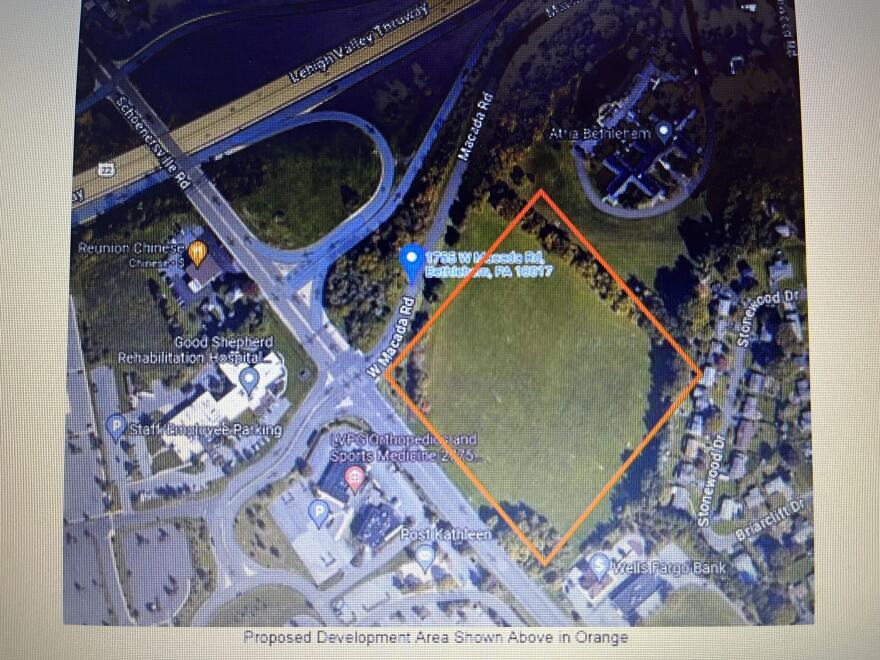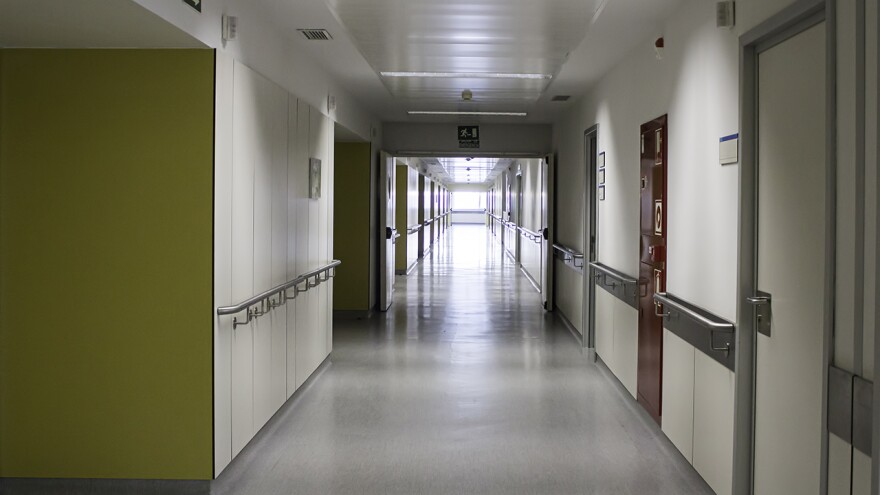HANOVER TWP., NORTHAMPTON COUNTY, Pa. — A 95,750-square-foot, 144-bed behavioral hospital planned for Hanover Township in Northampton County and expected to create more than 300 jobs was reviewed by Lehigh Valley Planning Commission on Thursday.
The commission concluded its review without issue.
The project, at 1755 W. Macada Road, is a consortium of Lehigh Valley Health Network’s Muhlenberg campus and Universal Health Services, of King of Prussia, Montgomery County.
A late-2025 opening is planned.
A commission staff review has determined the location, near Schoenersville Road and Route 22, is within a development area and has the factors needed to support growth.
That includes transportation infrastructure capacity and contiguity to existing development, and the area can accommodate a substantial amount of additional development.

The development plans depict two access sites — a main access on Macada Road and an emergency access at the back of the site which would connect to a driveway of an assisted living community.
The corner of Schoenersville Road and Macada Road has pedestrian lights, pavement-marked crosswalks, and tactile paving.
The LVPC recommended the developer work with the state Transportation Department to add sidewalks along both Macada Road and Schoenersville Road to connect them to the existing crosswalk and the site.
Another warehouse
Another project reviewed Thursday was a 307,500-square-foot manufacturing building planned for 795 Roble Road in Lehigh Valley Industrial Park III.
The current structure on the 19.93-acre parcel just south of Lehigh Valley International Airport is a nearly 200,000-square-foot warehouse that will be demolished to make room for the new center.
Infrastructure exists for uses that are being proposed with this project, the commission said.
John Gallagher, LVPC member from Northampton County, addressed the commission, wondering whether it knew why the developers want to tear down the current warehouse to build a new one instead of just expanding the existing building.
LVPC Chairman Steven Glickman said the commission was not certain why that decision was being made.
Other business
The committee also briefly addressed the following items that were reviewed at the Comprehensive Planning Committee meeting on Tuesday:
- Lower Nazareth Township: Request to rezone for residential, commercial and light industrial development along the Route 191 corridor.
- Lower Macungie Township: Request to amend the township’s official map to remove future road extensions deemed to have been completed or unnecessary; request for zoning amendment pertaining to structures and activities in floodplains.
- Williams Township: Zoning ordinance amendment to provide additional regulations for solar energy and on-site usage; zoning ordinance amendment regarding the definition of in-law residential suites.
- Fountain Hill Borough: Zoning ordinance amendment further establishes what types of signs are allowed or restricted.
Lehigh Valley Planning Commission is an advisory body with a professional staff that makes recommendations on large projects proposed in Lehigh and Northampton counties.
It has a professional staff that reviews whether development conforms with FutureLV, the commission's regional plan.
Appointed commissioners from both counties then discuss staff recommendations, sometimes alter them, and vote on sending the reports to developers and local governments.
The commission does not vote to approve or block projects. Final land-use decisions are made by municipalities.


